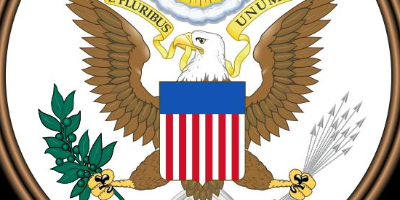nov 15, 1777 - Articles of Confederation written
Description:
The Articles of Confederation and Perpetual Union was the first draft for an official government of the US, coming 15 months after the new nation declared independence. It proposed a confederation of the 13 states, each with their own, mostly autonomous government. They would be united by a weak central government, similar to the Second Continental Congress. The Articles placed great emphasis on decentralized power, as the American Revolution was being fought because of a tyrannical authoritarian, something the Americans wished to avoid a repetition of. The Continental Congress was renamed to the Congress of the Confederation, but most used its old name, as the Articles changed very little of Congress' powers or responsibilities. The Articles were largely written in order to justify the actions of Congress, as when they were formed they had no legal authority to do anything, and yet they established a military, negotiated with foreign countries, issued paper currency, imposed trade restrictions, and other functions of a government. On June 12, 1776, Congress appointed a special council of 13 to create a written constitution to act as a guide for the powers of the government. The first draft was finished within a month, which was sent to Congress for revision. The final draft was approved for ratification by Congress on November 15, 1777. It consisted of a preamble, 13 articles, and a conclusion. The articles consisted of the following:-names the confederation "The United States of America"
-promises sovereignty to each state, with the exception of the powers granted to Congress
-states the purpose of the confederation to be to protect each other
-grants people the right to move freely between states and equal rights between states
-grants each state 2-7 Congressmen appointed by state legislatures, who collectively get one vote.
-grants Congress the exclusive right to declare war and conduct foreign political and commercial relations
-state legislatures assign ranks of colonel and below to soldiers in wartime
-each state contributes to the federal budget, proportional to the amount of money each has
-grants Congress certain powers, including making treaties and alliances, determining war and peace, establishing courts, and minting coins. Congress serves as the highest court to resolve interstate disputes. Such a court is composed of appointed commissioners. Congress regulates the post office and the military, including appointing military officers. Congress can request payment or supplies from states. Congress cannot declare wars, make treaties or alliances, or appoint a commander-in-chief without the permission of nine states.
-most powers of Congress can be exercised by states when nine of them agree when Congress is in session
-Quebec will be allowed into the confederation if they wish; otherwise, nine states must grant consent to admit new states
-the confederation accepts the Second Continental Congress' war debt
-the government is permanent and can only be altered with the permission of Congress and every state legislature
However, from their inception the Articles were fatally flawed. Congress had essentially no poewr without the consent of states. Many soldiers during the war defected because of a lack of pay, and Congress had no authority to force the states to pay them. Congress could also not force delegates to show up, leaving little accomplished in a timely matter. For this reason, the signing of the Treaty of Paris was delayed by several months due to a lack of delegates showing up. The Articles were ratified in 1781, and continued to serve as the country's constitution until 1788.
Full Text
https://bit.ly/1nMGWGa
Added to timeline:
Date:
nov 15, 1777
Now
~ 248 years ago
